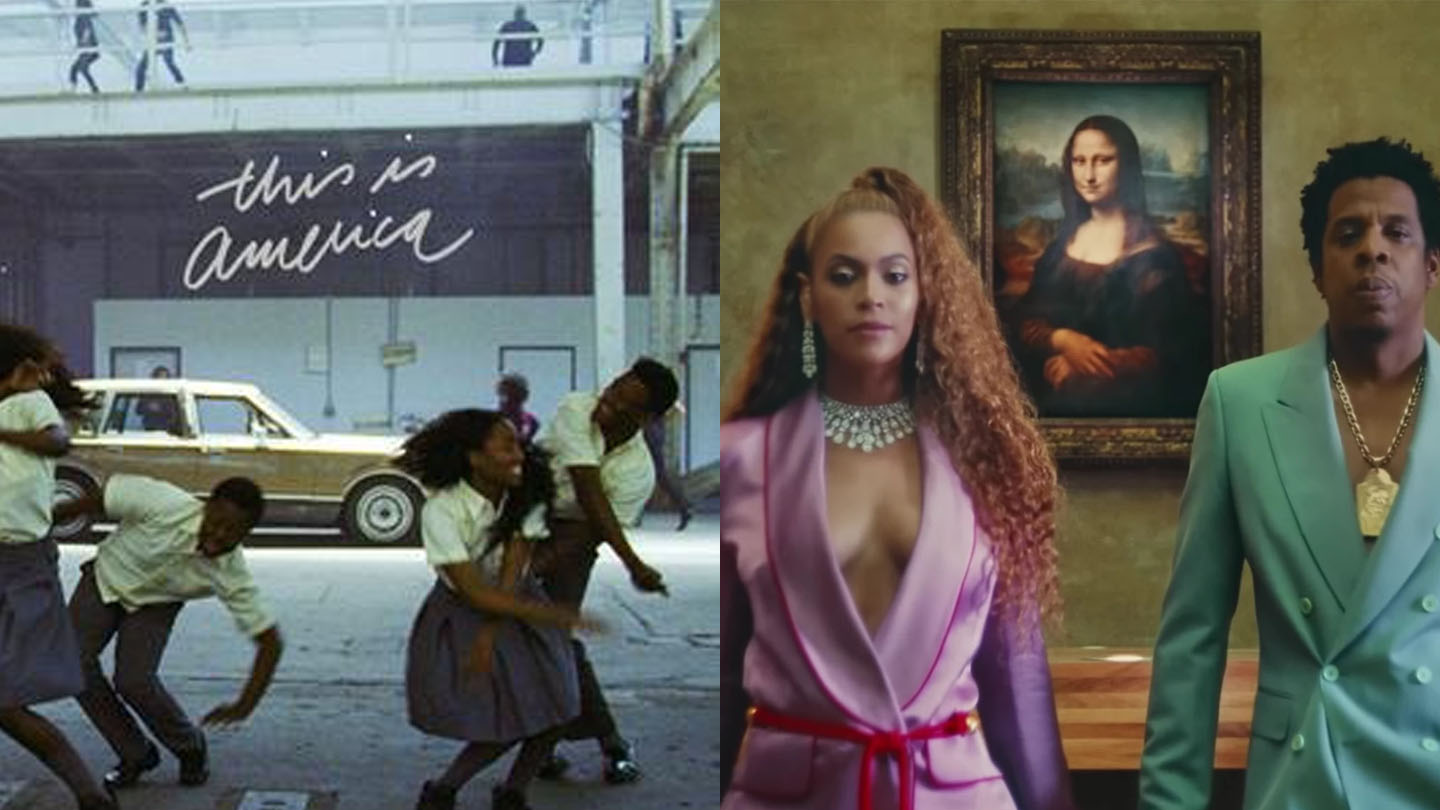It’s 2018 and life comes at you fast. Gone are the days when you could rely on the music industry to stick to a schedule. Gone are the days when you could predict when you’d lose entire days to listening to your new faves on repeat. We live now in a new era, one of endless surprise ‘drops’, albums which come out of nowhere and singles released with wild abandon. And while it’s always fun to wake up to Twitter losing its shit over a new artist and a deluge of frantic hot takes cooked up by tired and unprepared music journalists, the “surprise! new music” schtick is starting to get a little exhausting.
The idea of a secret drop is so irresistible to musicians that in the time it’s taken me to write this piece, a few very notable examples have occurred.
Childish Gambino just released not one but two surprise summertime bops. Released on streaming services under the title Summertime Pack, both Summertime Magic and Feels Like Summer appeared out of nowhere after Donald Glover posted them on Twitter with the level of nonchalance most of us would reserve for RTing memes about Harry Maguire’s head.
Admittedly, it’s hard to be angry about unannounced drops like the ones Donald Glover has graced us with today. After all, surprise releases have a history of being absolute bangers, just look at Beyonce’s eponymous 2013 album and 2016’s Lemonade, David Bowie’s The Next Day, Drake’s If You’re Reading This It’s Too Late, and Frank Ocean‘s Blonde… While the actual content of surprise albums might, more often than not, be amazing, the act of the surprise drop causes so much buzz that quite often, more discussion is dedicated to wondering just how they managed to keep it a secret so expertly than in actually talking about the music itself. It becomes, in short, a gimmick. Despite regularly sending Twitter into meltdown and resulting in record breaking streaming numbers, dropping an album outta nowhere becomes the story, and that in turn detracts from the actual music itself. As everyone rushes to write about it, few actually have time to stop and consider and think about the music.
Not only that, but with the growing regularity of the surprise album drop, that gimmick becomes tired real fast. Nowadays, it would almost be more surprising and groundbreaking for Beyonce to announce that she’s got new music coming out in six months than to announce it to shock and awe at the end of a world tour performance, or to suddenly drop a track online with no hype and watch it garner 50 million streams within the hour.
Streaming of course, is where the surprise drop comes from. Streaming and piracy. Nowadays, thanks to the internet, every new release is easily available for download (well, unless it goes on Tidal) and that means that artists have been forced to get inventive with how they present new music to us, the consumer. 10 years ago the standard for consuming music was at least marginally more physical. Musicians still clung to the idea of a physical copy of their music, and when they had to focus on CD, and latterly a renaissance of vinyl, sales, the PR machinations that led to new releases were slow, calculated, and often boring. And they often still didn’t work. Huge PR campaigns, lasting months on end, could still produce an embarrassing flop (you only need to look at the run up to Justin Timberlake’s cringe-inducing Man of The Woods to know this run up, then flop disaster can happen just as easily in 2018, too).
Modern consumers, however, have grown up with the internet and cut our teeth on Napster and Limewire, and we are admittedly greedy. What is today’s big news on Twitter is tomorrow’s past it meme on Facebook. The internet moves at lightning speed, and unless an artist makes a big enough splash, enough to have people gagging online over their airtight NDAs and PR savviness, their music will quickly be forgotten. They risk becoming the digital version of an analog one hit wonder. This, coupled with the temptation to avoid building an album up and ultimately disappointing jaded social media savvy fans and bored music journalists (the Man of The Woods effect, perhaps) goes some way to explain why musicians have embraced the surprise drop with such fervour.
So while we might be exhausted by the constant conveyor belt of “we got ya!’ new music drops, we have to admit that we are, at least partly, responsible for it. If we could just exercise a little patience, learn to enjoy the art of suspense once again, then maybe we could all get a little bit of peace, quiet and a notice period. Please. Everything happens so fast and we’ve bloody exhausted, okay?
